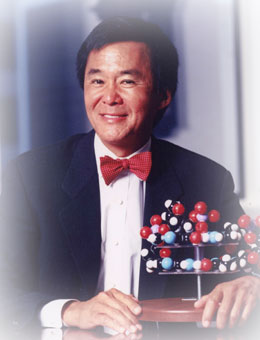|
ASIAN AMERICAN PERSONALITIES |
CONTACT US
|
ADVERTISING INFO
© 1996-2013 Asian Media Group Inc
No part of the contents of this site may be reproduced without prior written permission.
GOLDSEA | ASIAMS.NET | ASIAN AMERICAN PERSONALITIES
Titan of
Tech Trials
PAGE 7 OF 7
MC: It's an easy answer. We always stuck to our basic knitting. We never chased short-term profitability. When the economic cycle was on the upswing, many law firms, most law firms, want to expand rapidly. From the very beginning of the firm 'til today, we've always thought that is not a wise long-term strategy. We focused on quality, quality, quality. That means attracting and retaining the best and brightest. The most creative lawyers exercise the best judgment in tough situations. You can't do that by rapid expansion and just hiring large numbers of lawyers.

GS: Do you have much involvement in the recruitment side?
MC: Yes, absolutley. One of the most importnat things we do is to attract and retain the best people.
GS: Do you go to law firms to interview, have recruits over for lunch?
MC: Yes.
GS: What is the quality you look for when you're interviewing someone at a law school or when they come by your office?
MC: Pretty simple formula. People who are bright and energetic and creative, willing to work hard, who are also good human beings. And I emphasize the latter point.
GS: Do you have a preference for people who have a technical or scientific background?
MC: Nothing is more important than the factors I mentioned. Sure, if someone has something in addition, that can be a plus. But it's not just limited to having a science background or a technical degree. I think it's fabulous when someone's an accomplished musician, someone's written and published a book, something that makes that individual special in some fashion. It says something about that individual. There are people who achieved in other things. It could be athletics or some other area, giving some indication of the kind of person they are.
GS: Do you have any advice in general to Asians about big-firm lawyering, the benefits and liabilities?
MC: One size doesn't fit all. Work hard, be yourself.
GS: What is your family background?
MC: My parents were born in China, grew up in China. My mother was from Tianjin. They left as young adults after world war II had started and Japan invaded China and their country was at war. Most of their family and siblings stayed in China so they were lucky enough to get to the U.S. Japan invaded China in the 30s, so for that part of the world that was the start of World War II. After Japan had invaded China, after some period of time, each of them were able to leave.
CONTINUED BELOW
GS: How did they make a living?
MC: They had both gone to college in China. Both ended up at MIT. They were students. My mother was pregnant, had my oldest brother. My father continued to study. Later he taught chemical engineering.
GS: Were you born in New York?
MC: Yes, New York City, Manhattan. Beth Israel Hospital. I have two brothers, no sisters. I am the youngest.
GS: What do your brothers do?
MC: My oldest brother Gilbert started off with a PhD in physics, then decided he was interested in biology, got a medical degree. He's now teaching at Stanford Medical School. Gilbert is the smartest guy.
GS: He might argue with you.
MC: Maybe Steven will argue with me. He ended up getting a PhD in physics as well, and quite by coincidence he is teaching as a professor at the Stanford physics department. Steven is a famous guy, he has a Nobel Prize. He was actually born in St Louis but never lived there.
GS: What is the Nobel for?
MC: A shorthand way to describe it is laser cooling. It was using beams of light to slow down the speed of gas atoms, so they're still in a gas state. The light beam was slowing them down and as you slow down the movement of atoms, it's the equivalent of cooling because the heat is the equivalent of the speed of atoms.
GS: When was the Nobel?
MC: The Prize was in 1997. The original work was done in the mid 1980s.
| "The most creative lawyers exercise the best judgment in tough situations." |
